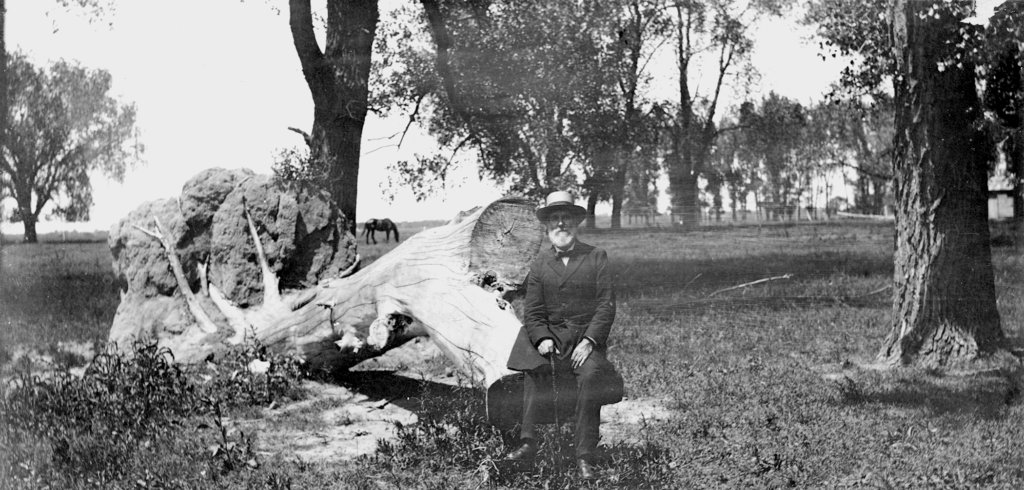A traveler to Republican City via Kearney described his journey in a letter published July 4, 1872, in the Nebraska Advertiser of Brownville. The author, “W. D. B.,” described the site of the former Fort Kearny as “deserted, except one soldier, who remains with his family,” and noted his meeting with “Moses Sydenham, proprietor of the Central Star, who is diligently advocating the claims of the [Fort Kearny] Reservation as a central location for the New Washington.”
Moses Sydenham (1835-1907) had a long and eventful life as a freighter, newspaperman, postmaster and storekeeper at Fort Kearny, and settler in the Platte valley. In his autobiography, written in 1902 (and published in the Nebraska State Journal on February 4, 1907, after his death) he recalled his unsuccessful campaign to have the U.S. capital relocated to central Nebraska:
“In 1870 I advocated and agitated the question of removing the United States capital to the Fort Kearney [sic] military reservation: a government tract of land ten miles square-the same size as the District of Columbia-which I proposed to lay off into lots and sell at auction from time to time to furnish money for a fund to build the public buildings-with an additional grant of some other section of unoccupied public lands. The new city was to be named ‘New Washington,’ canals were to be cut from the Platte river to furnish water power and irrigate the city; . . . the new buildings to be of the most modern as well as a substantial kind.
“I claimed that if Congress passed the act providing for the same, that railroads would center there from all points of the compass, and a large city grow as if by magic; would stimulate business in all the eastern cities and be an impetus for developing the then undeveloped central plains of this republic in Kansas and Nebraska; make our nation’s capital safe from foreign attack, and bind all sections of our country together in one harmonious bond of business and so aid relationship; the sectional differences at that time being very decided and strong.
“My proposition was well received by many of our statesmen both in and out of Congress, and by the press of the country. I was appointed by Governor Furnas of Nebraska a delegate to the national capital removal convention held [in 1870] in Louisville, Ky. I lectured also in some of our eastern cities on ‘The City of New Washington.’ When the general question came up in Congress for ‘removing the capital,’ the majority report of the committee was against removal and that settled the question-the military reservation soon after being opened up for homestead settlement by an act of Congress provided therefor.”




